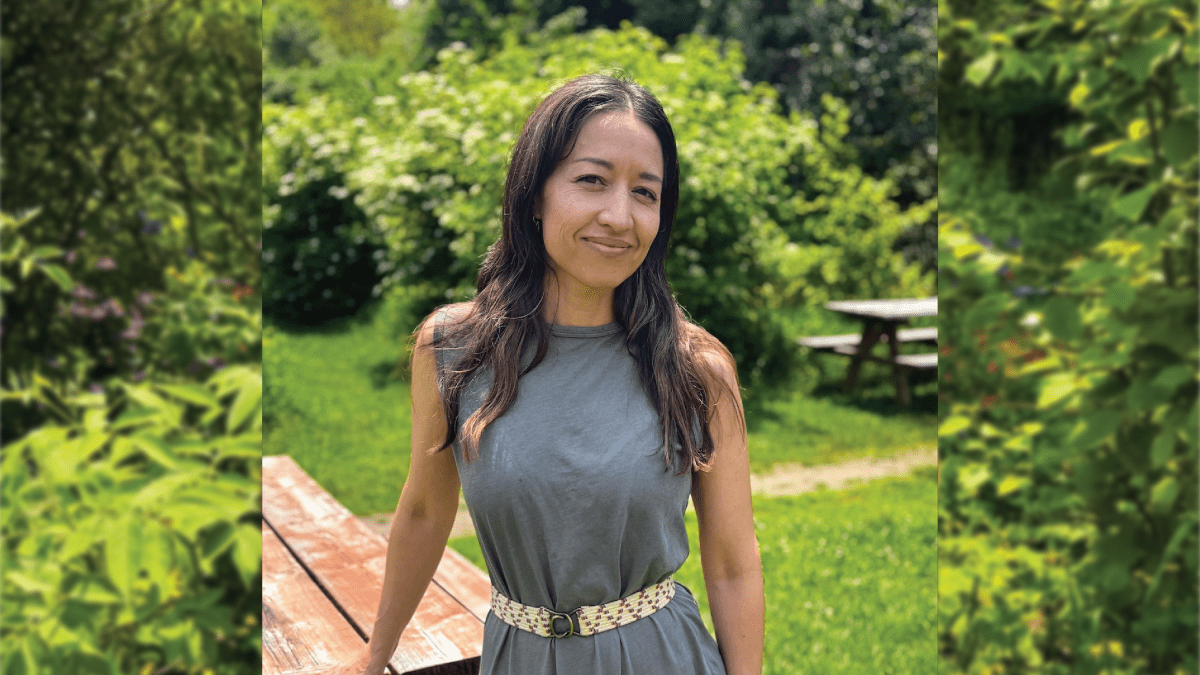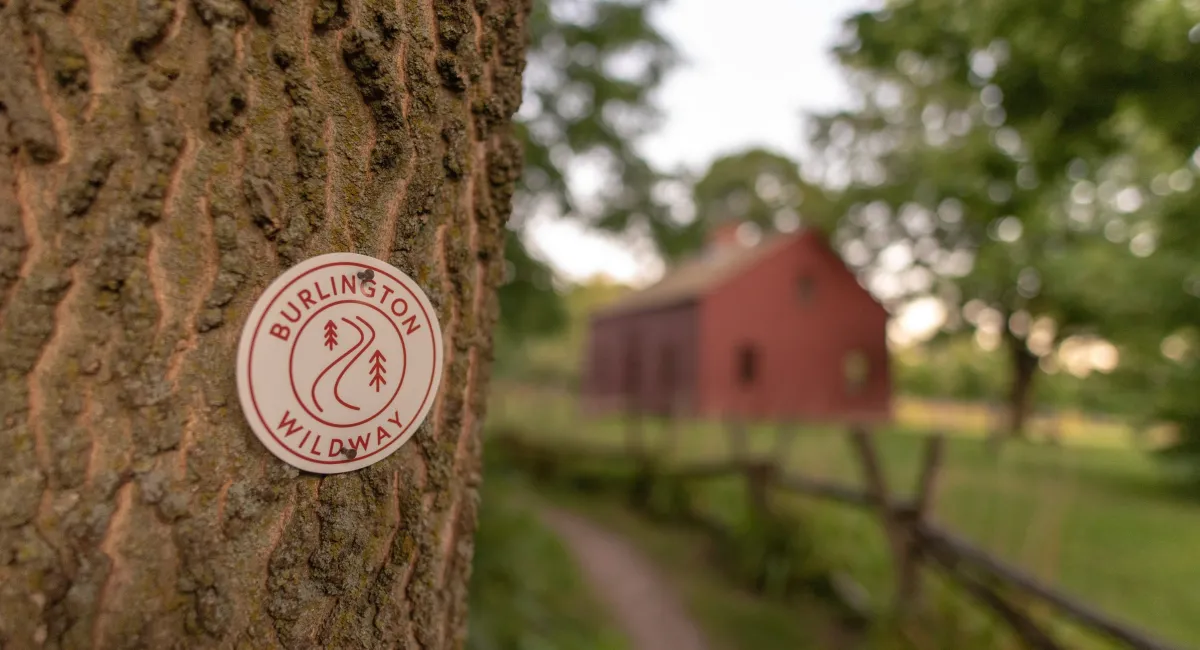
Dan Cahill, City Land Steward recently went on a walk at Kieslich Park and interviewed Jules Shen, one of Burlington’s unsung heroes. In her role as the BPRW Marketing and Outreach Coordinator she helps make our community safer, more vibrant and more connected. This interview illuminates a lot of the work she does and the special role she plays.
Dan Cahill: How would you describe the work you do?
Jules Shen: I direct the communications for five divisions of our department: parks, recreation, waterfront, and planning. Currently, I am sort of a one-person operation, so I wear a lot of hats — I do website work, writing, graphics, social media, photography & videography, project development, and strategic work within the city with partners and other departments. I do all of the signs for our parks as well, so the park signage and graphics, messages about our beaches and parks, conservation work and construction projects. I promote our recreation programs through advertising, social media, as well as our events. We have a pretty full calendar of free-public events, year-round. There's probably some other things I'm not thinking about!
So you support all facets of the department. And I can imagine that comes with a lot of adaptability. You're working with all kinds of different humans at different scales of managers, field staff and different personality styles and learning styles. How do you navigate being kind of the centerpiece of filtering all these communication needs?
It's definitely challenging to navigate that. I definitely am looking at what the priorities are for our department. But sometimes it just comes down to — what is the most timely thing that I need to get out to the public. As a public servant, doing public comms, I try to think about “What do they need to know right now? What is important for a community member? What are the most vital public comms needed at the moment?” Because especially in the summer, it is so busy and there are so many needs. But I deeply value the work everyone does at the department and want to represent it the best I can. So even if I can't handle a comms request in the moment for someone, I do try to like come back to it when I can.
That's great. So you support all these different parts of our department and you really show up for conservation, both within the city's staffing structures, but also in community partnerships. You come to this work with a master's degree in environmental communication, how have you been able to put that into play to support conservation work in Burlington?
I think that was one of the reasons I really wanted to be involved in this work and with the department — so I could be involved in environmental conservation work and communicating that to the public in new, innovative ways, and really try to move the needle as much as possible and help thread together the partners.
We do amazing work here at the City. So it has been important to me to try to bring it up to the fore as much as possible in our communications, especially on social media. I try to weave in what the conservation team is working on, and just kind of keep the conversation going, so it's not just a one-off thing every now and then.
I'm really interested in being involved in projects on a deeper level because communications and strategy really go hand in hand. Communications is often thought of as the last part of a project, but if it’s woven in from the beginning and part of the strategy, it can be so powerful. And if we can get the message to people in a way that resonates it helps work through some of the issues that like government communication tends to have. Government communications can sometimes be very dry or it can include a lot of acronyms and multi-syllable words that often don't have meaning to people. So I just try to use plain language, do storytelling, and do a lot of visual work. I come from a background of filmmaking and photography, so visual representation and visual storytelling is important to me.
So you've had how much time now in this job?
Coming up on three years in October.
So in this time, you've gotten to kind of get your feet wet of the Burlington world. When it comes to conservation, what do you see as the pressing needs of Burlington's community to continue to meet the challenges that we’re facing in a changing climate?
I personally think that water is definitely a big one. I think the work that Grow Wild, Burlington Wildways, the Land Steward and Conservation Team are doing is so vital, as well as other organizations who are promoting planting native plants and replanting native landscapes that can soak up stormwater and reinvigorate native wildlife and wildlife corridors. I think that is going to be a huge part of climate mitigation and also help manage a lot of the issues we have with the water quality at Lake Champlain.
That's definitely something I feel very passionately about. I come here to Burlington with a lot of experience in water in Philadelphia, and it's all the same issues. There's definitely a lot more lawn here versus hardscape, so it presents an opportunity, because that can be turned into something beneficial more easily. But it's also a cultural shift that I think takes a lot of long-range work: talking to people, and taking actions that get them to see what things could look like if they're a bit different and show how important those changes can be.
And then definitely with development, I think like the Open Space Plan is doing great work there, like: how can we work with developers to make sure they're upholding best practices in terms of stormwater, wildlife, and native plantings?
It's definitely getting hotter here, so the more trees we can plant the better. And promoting the work that the City Arborist and trees team is doing is also so important.
Where do you find your inspiration to keep doing the work? What are some of the inspirations that help you stay buoyant?
For me, it's really other people. I find inspiration in other people's energy and seeing how many passionate people there are here in Burlington who really do want to change things and are willing to volunteer, putting in time and work to go above and beyond is extremely inspiring to me. And also, artistry, the different local artists, graphic designers, photographers and videographers that I follow online — they just inspire me to look at nature in different ways.
Well, thank you so much for your time. And thank you for all the work that you do in Burlington.
Well, thank you. I really appreciate this. And thank you for all the work you do.
